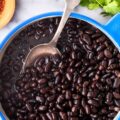A bean is the seed of several plants in the family Fabaceae, which are used as vegetables for human or animal food. They can be cooked in many different ways, including boiling, frying, and baking, and are used in many traditional dishes throughout the world. Beans are a strong, plant-based source of protein, fiber, iron, and vitamins that offer many health benefits. Many studies have suggested that including more plant foods, such as green beans, in the diet decreases the risk of obesity, diabetes, heart disease, and overall mortality.
Benefits of Beans:
- Protein
- Folate
- Antioxidants
- Heart health
- Reduced risk of cancer
- Diabetes and glucose metabolism
- Preventing fatty liver
- Improving gut health
Nutritional facts:
- Protein: 15 grams
- Fat: 1 gram
- Carbs: 45 grams
- Fiber: 15 grams
- Iron: 20% of the Daily Value (DV)
- Calcium: 8% of the DV
- Magnesium: 21% of the DV
- Phosphorous: 25% of the DV
- Potassium: 21% of the DV
- Folate: 74% of the DV
Risks:
People who are taking blood-thinners, such as Coumadin, or warfarin, should not suddenly change the amount of food they eat that contains vitamin K, as it plays a large role in blood clotting. Green beans contain phytic acid, which can bond with minerals and prevent them from being absorbed by the body. People who have a mineral deficiency should check with a doctor before consuming additional green beans.




